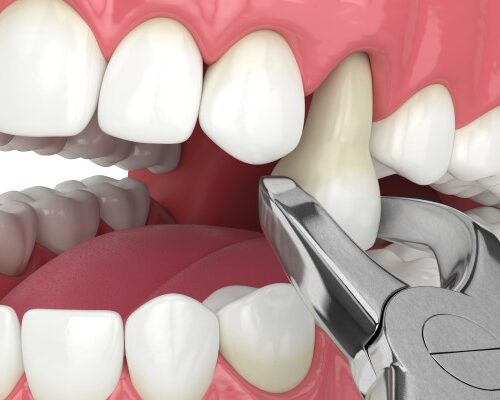What are dental extractions
A dental extraction is the process of removal of teeth due to prevailing problems such as damage or cavity. However, the procedure is not restricted to these problems and might be done for many other issues pertaining to a person’s dental health. Tooth extraction is usually performed under local or general anaesthesia. Only a dentist or oral surgeon is qualified to do so and the extraction is a rather simple procedure.
Indications for the treatment
While damage and decay are the primary problems that need extractions, other major reasons involve issues like overcrowding, misalignment and pain emerging due to issues like wisdom teeth. Another less common condition where extractions might be needed is in the process of placing dental braces. Those who are undergoing chemotherapy or are about to have an organ transplant may need compromised teeth removed in order to keep their mouth healthy.
Hadapsar, Pune’s Leading Dental Extraction Centre – Dental Extraction in Kharadi.

Procedure Of Tooth Extraction
Before the dentist begins the procedure, there are some necessary checks that need to be conducted. These checks majorly pertain to any underlying conditions that may create a problem during or after the procedure. The dentist may need to check for conditions like –
- Heart issues
- Diabetes
- Liver disease
- Thyroid disease
- Renal disease
- Hypertension
- An artificial joint
- Damaged heart valves
- Adrenal disease
- An impaired immune system
- Bacterial endocarditis
The treatment may be delayed in situations where the patient has an underlying condition or a weak immune system. Usually, there are two types of extractions –
Simple extraction
Simple extraction only involves injecting local anaesthesia. The patient will receive anaesthesia that will numb the tooth and surrounding area. The extraction is then carried forward using an instrument called an elevator. Further, the forceps are used to finally remove the tooth. During the process, the patient might feel pressure but not pain.
Surgical extraction
You will likely receive both local anaesthesia and intravenous anaesthesia. An intravenous anaesthesia makes the patient relaxed which is needed in the case of surgical extraction because it involves cutting the gum as well. The general anaesthesia is might be opted out in case of a surgical extraction. Apart from the operation on the gums, the area surrounding the tooth, including the bone may be operated upon as well.
Post Treatment Care
- Apply an ice pack to your cheek directly after the procedure to reduce swelling. You may use the ice pack for as long as you need the swelling to reduce.
- Carefully consume all the prescribed medications including painkillers.
- Rest and relax for the first 24 hours. Avoid resuming your daily activities right away.
- Don’t smoke.
- Don’t perform aggressive oral activities like rinsing for at least 24 hours within the tooth extraction. Be gentle with your mouth.
- Brush your teeth gently and avoid the extraction site.
- Consume soft foods and semi solids
- Use pillows as you lie down, to maintain the comfort of your face.
- After 24 hours, rinse out your mouth with warm water and salt.
If you are experiencing pain that isn’t going away after several days or signs of an infection —including fever, pain, and pus or drainage from the incision — make an appointment to see your dentist as soon as possible.
Get your Dental treatment with single consultation.
We also Provide Services like Orthodontic Treatment